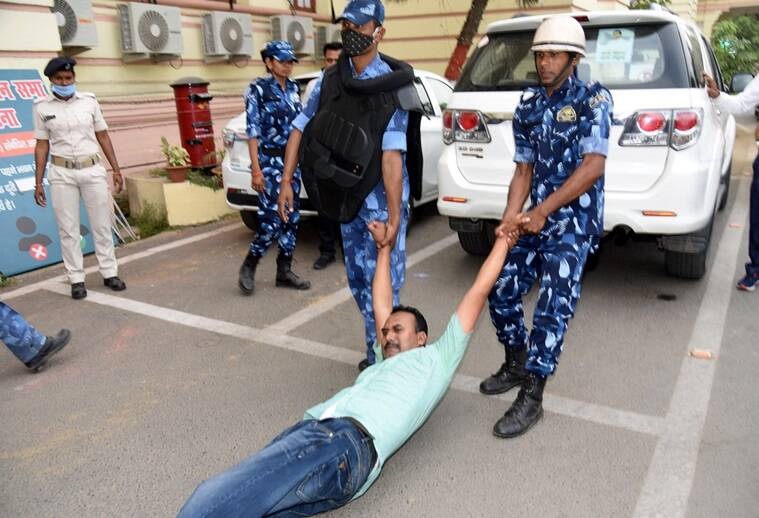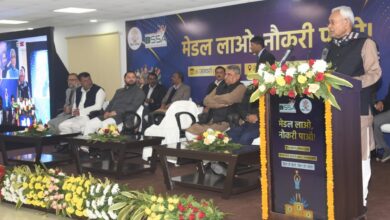Bihar Special Armed Police Bill 2021: All You Need to Know

Bihar Special Armed Police Bill, 2021 led to unprecedented violent protests in the state assembly. The opposition legislators physically prevented the speaker from taking his chair in the house and then some MLAs were beaten up by security forces and marshalled out of the Assembly.
The Bill is finally passed by the state assembly and all set to become a new law. What is in this bill that has led to the violent protests? Why are the oppositions so apprehensive about the bill? Here is all you need to know about the new proposed legislation.
What is in the Bill
The new Bill seeks to rename the Bihar Military Police (BMP) as the Bihar Special Armed Police (BSAP) that will function in lines with the Central Industrial Security Force (CISF).
The focus of the Bihar Special Armed Police will be on securing the commercial and industrial assets of the state. The BSAP will be deployed to provide security to the industrial installations like airport, metro rail and also the places of tourist interest. It will be responsible for protecting the landmark tourist places like Mahabodhi temple in Bodh Gaya. At present, the Bihar Military Police is entrusted with the security of the Mahabodhi Temple in Gaya.
The new legislation aims to develop the Bihar Military Police (BMP) into a well-trained and fully equipped armed police force with multi-domain expertise to cater to the development needs and the larger interest of the state.
The governing rules of the Bihar Military Police were framed in 1892. This is nearly 130 years old and needed to be updated. The military (sainya) is not used as part of nomenclature for any police force so the name needed to be changed.
The mandate of the BSAP will be the “maintenance of public order, combating extremism, ensuring the better protection and security of specified establishments in such manner as may be notified and perform such other duties, as may be notified.”
Jobs for Local: Over the past decade, the state’s dependence on Central forces has grown, and an organised armed police force of its own will save government expenses and create more jobs for locals.
Why the protests
The opposition parties have termed the new bill as “black law”. The main reason for the protest against this Bill is that it will allow the Special Armed Police officers to carry out searches and arrests without a warrant.
The provision of carry out searches and arresting people without a warrant is in line with the provisions under the Central Industrial Security Force Act, 1968. Under this law the CISF can arrest people, including on suspicion, without any order from a magistrate and without a warrant.
Why the need for such provisions
According to the government, the new Bill is aimed at boosting security, and will have limited scope as it is applicable only to certain specified areas.
The new Bill has provisions to allow for search and arrest without warrant by a Special Armed Police officials engaged in protection of such notified premises. The powers of search and arrest without warrant are already available to the district police (in their jurisdiction) in all states as per provisions of section 41, 165 etc. of the Code of Criminal Procedure, 1973. This Act however gives such powers of search and arrest without warrant to the Special Armed Police Officers only for the purposes of security of notified premises.
“Its section and sub-sections will act as check on the BSAP jawans and officials. The provisions are inbuilt and provide clauses for taking stringent administrative actions against those personnel who will violate its rules or misuse it. The rules provide for a check on the officials and personnel are hard and not found in any law meant for policing anywhere,” said Chief Minister Nitish Kumar.
Bihar DGP S K Singhal and Additional Chief Secretary (Home) Chaitanya Prasad have asserted that under the new law if anyone is arrested by the special force, they will be immediately handed over to the district police, which will have powers to investigate as usual.




